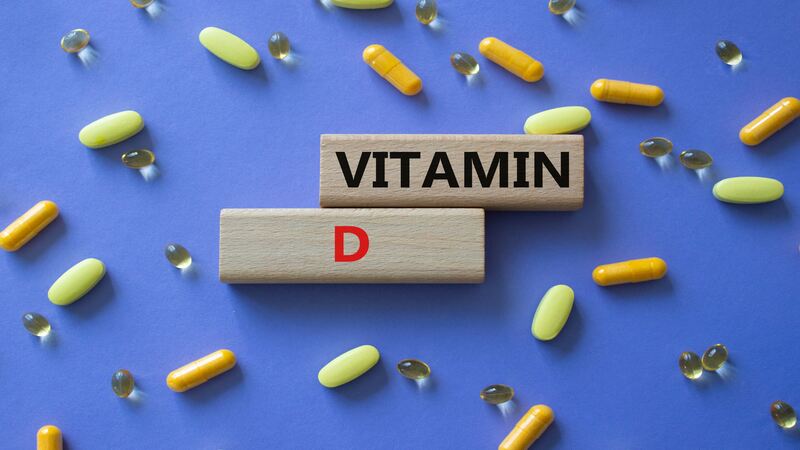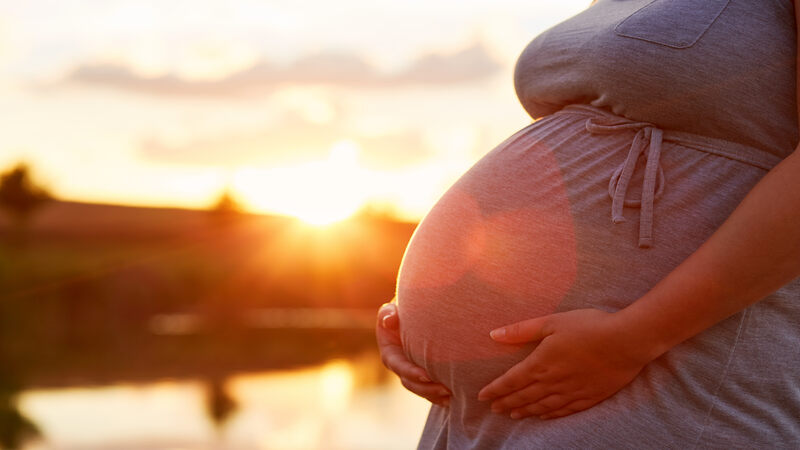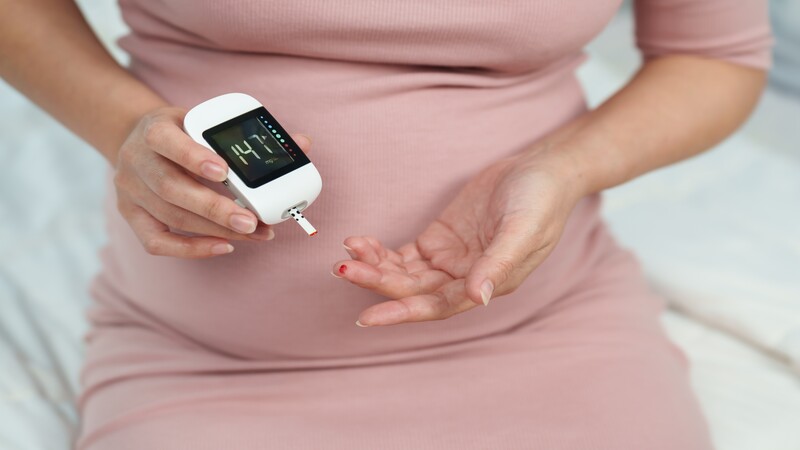
Vitamin D is essential for maintaining bone health and strong teeth. A lack of Vitamin D during pregnancy can lead to skeletal deformities and stunted growth in infants. Additionally, Vitamin D plays a role in regulating immunity through certain receptors. Numerous research studies have been conducted on the relationship between Vitamin D and pregnancy.
Studies indicate that Vitamin D is crucial in preventing gestational complications like pre-eclampsia, gestational diabetes, hypertension, and a higher risk of C-section. Adequate intake of Vitamin D specifically D2 and D3 is important for healthy fetal development and maternal well-being during pregnancy.
Why Do I Need Vitamin D During Pregnancy?
The low levels of Vitamin D serum in the blood during pregnancy can lead to various health issues for both the mother and the baby. Research shows that a Vitamin D deficiency in the fetus can result in reduced bone mass, weakened bones, and an increased risk of fractures later in life (1). Proper Vitamin D intake during pregnancy is crucial for the following:
- Promotes the absorption of Calcium from the gut
- Enables bone mineralization and growth
- Reduces the risk of Pre-eclampsia, low birth weight, and Preterm Birth
- Maintains glucose homeostasis (2)
- Plays an important role in neurodevelopment in the growing fetus
Am I At Risk Of Vitamin D Deficiency?

It is quite possible if you do not maintain your body in the right way. Certain factors might put you at risk of Vitamin D deficiency. Those are as follows:
- Body weight higher than normal
- Medications such as corticosteroids, statins, etc., may reduce Vitamin D absorption from the intestines (3).
- Studies state that disorders such as Crohn’s disease – Inflammatory Bowel Disease (IBD), may reduce the ability to absorb dietary fat leading to less absorption of vitamin D (4).
How Much Vitamin D Do You Need For Pregnancy?
About 10 mcg of Vitamin D is suggested during pregnancy, although the dosage is still a matter of debate. The widely recommended usual supplements contain about 400 IU (i.e. 10 mcg) of Vitamin D.
However, up to 4000 IU of Vitamin D is found to reduce birth defects and infections and is considered safe, though most health groups recommend not taking more than 2,000 IU of the vitamin in supplement form daily (5).
Sunlight During Pregnancy For Vitamin D

Sunlight is the perfect source of Vitamin D, but some experts do not recommend staying in the sun for a longer duration without sunblock and covering. This is because pregnancy causes skin pigmentation, and exposure to the sun may just intensify the darkening of the skin.
Just about 15-20 minutes of sunshine on the head, face, and arms, without sunscreen is recommended during summers and this should help you in winter as well. However, exercise caution not to burn your skin or let it turn red. If it is winter, you might have to get yourself tested and determine whether or not you need Vitamin D supplements.
Food Sources Of Vitamin D
The Vitamin D supply is relatively sparse through foodstuffs, however, pregnant mums can naturally supplement their diet by including the following items in their meals (6)
| Food Sources | Serving | Vitamin D IU’s |
|---|---|---|
| Cod Liver Oil (7) | 1 tablespoon | 1360 |
| Salmon, Cooked | 3 ½ ounces | 360 |
| Mackerel, cooked | 3 ½ ounces | 345 |
| Tuna Fish, canned in Oil | 3 ounces | 300 |
| Orange juice, fortified | 8 ounces | 100 |
| Milk, organic, from grass-fed cows and fortified | 1 cup | 98 |
| Cereal, fortified | Up to 1 cup | 40 |
| Egg (Vitamin D is found in Egg Yolks) | 1 large | 41 |
| Liver, Beef, cooked | 3 ½ ounces | 15 |
| Cheese, Swiss | 1 ounce | 12 |
| Soy milk, Fortified | 1 cup | 119 |
Vitamin D Supplements During Pregnancy

Relying solely on food for Vitamin D may not be enough, especially with limited sunlight exposure. In such cases, Vitamin D supplements may be necessary. It is generally safe to take Vitamin D supplements during pregnancy (8). The recommended daily intake of Vitamin-D during pregnancy is 10 mcg (9).
The recommended daily intake of Vitamin-D is based on individuals and existing medical conditions. Hence, it is important to get tested for deficiency before starting any supplements. Choose Vitamin D3 or cholecalciferol for the most effective form and avoid self-prescribing medications during pregnancy.
Adverse Effects Of Deficiency Of Vitamin-D On Fetus
If your body does not receive sufficient Vitamin-D, it may harm both the unborn baby and the expecting mother. Your baby is more likely to develop the following conditions due to a lack of Vitamin-D (10)
- Rickets
- Hypocalcemia
- Glucose intolerance
- Low birth weight: Baby weight lowers by 200 g
- Impaired growth
- Wheezing
- Asthma
Vitamin D deficiency can be pretty subtle, and you may not even notice the same. Muscles that ache frequently, weakness, soft bones leading to fractures, etc., are some subtle symptoms.
Impact of Vitamin-D deficiency During Pregnancy

If your body does not receive sufficient Vitamin-D during pregnancy (11), there is an increased risk of,
- Preeclampsia
- Hypertension
- Diabetes – which can cause pregnancy complications
- Bacterial vaginosis
- Recurrent Miscarriages
- Increased rate of c-section
The good news is that we can prevent Vitamin-D deficiency risks. All it takes is to decide, go out in the fresh air, and exercise a bit! A little sunshine is all it takes – for better health and a healthy baby!
Vitamin D during pregnancy plays a critical role in maintaining bone health, and low Vitamin D levels are linked to complications such as preeclampsia and congenital rickets. To maintain adequate levels of Vitamin D, consuming food sources rich in Vitamin D, spending time in the sunlight, and engaging in recommended moderate exercises is advisable.
FAQ’s
1. How Much Vitamin D is Ok In Pregnancy?
As per studies, Vitamin D during Pregnancy should ideally range between 600 and 2000 IU per day to prevent preeclampsia, preterm births, and other associated complications.
2. What Happens If Vitamin D Is Low During Pregnancy?
Vitamin D, if low during pregnancy, is associated with complications such as preeclampsia with the possibility of gestational diabetes and hypertension. Supplementation, if not taken at the right time, the newborn will have brittle bones and mental disorientation, resulting in congenital rickets.
3. Can Vitamin D Be Too High During Pregnancy?
It can be possible when the kidneys are not functioning well. Studies confirm that when Vitamin D shoots up, it increases Calcium absorption resulting in Hypercalcemia affecting the kidneys’ functioning capability.
References
- Aji, A.S., Erwinda, E., Yusrawati, Y. et al. Vitamin D deficiency status and its related risk factors during early pregnancy: a cross-sectional study of pregnant Minangkabau women, Indonesia. BMC Pregnancy Childbirth 19, 183 (2019) – https://bmcpregnancychildbirth.biomedcentral.com/articles/10.1186/s12884-019-2341-4
- Artemisia Kokkinari, Maria Dagla, Aikaterini Lykeridou, Georgios Iatrakis. The Association between Vitamin D Intake and Gestational Diabetes Mellitus: A Systematic Review. Clin. Exp. Obstet. Gynecol. 2023, 50(5), 96 – https://www.imrpress.com/journal/CEOG/50/5/10.31083/j.ceog5005096
- Robien K, Oppeneer SJ, Kelly JA, Hamilton-Reeves JM. Drug-vitamin D interactions: a systematic review of the literature. Nutr Clin Pract. 2013 Apr;28(2):194-208 –https://www.ncbi.nlm.nih.gov/pmc/articles/PMC5623087/
- Lee S, Metcalfe A, Raman M, Leung Y, Aghajafari F, Letourneau N, Panaccione R, Kaplan GG, Seow CH. Pregnant Women with Inflammatory Bowel Disease Are at Increased Risk of Vitamin D Insufficiency: A Cross-Sectional Study. J Crohns Colitis. 2018 May 25;12(6):702-709 – https://www.ncbi.nlm.nih.gov/pmc/articles/PMC5972591/
- Irwinda R, Hiksas R, Lokeswara AW, Wibowo N. Vitamin D supplementation higher than 2000 IU/day compared to lower dose on maternal–fetal outcome: Systematic review and meta-analysis. Women’s Health. 2022;18 – https://journals.sagepub.com/doi/10.1177/17455057221111066?icid=int.sj-full-text.similar-articles.1
- Christel Lamberg-Allardt, Vitamin D in foods and as supplements, Progress in Biophysics and Molecular Biology, Volume 92, Issue 1, 2006, Pages 33-38, ISSN 0079-6107 – https://www.sciencedirect.com/science/article/pii/S0079610706000071
- Stene LC, Ulriksen J, Magnus P, Joner G. Use of cod liver oil during pregnancy associated with lower risk of Type I diabetes in the offspring. Diabetologia. 2000 Sep;43(9):1093-8 – https://pubmed.ncbi.nlm.nih.gov/11043854/
- Mithal, Ambrish; Kalra, Sanjay1,. Vitamin D supplementation in pregnancy. Indian Journal of Endocrinology and Metabolism 18(5):p 593-596, Sep–Oct 2014 – https://journals.lww.com/indjem/fulltext/2014/18050/vitamin_d_supplementation_in_pregnancy.1.aspx
- Kaushal, Manila; Magon, Navneet1. Vitamin D in pregnancy: A metabolic outlook. Indian Journal of Endocrinology and Metabolism 17(1):p 76-82, Jan–Feb 2013 – https://journals.lww.com/indjem/fulltext/2013/17010/vitamin_d_in_pregnancy__a_metabolic_outlook.11.aspx
- Mulligan ML, Felton SK, Riek AE, Bernal-Mizrachi C. Implications of vitamin D deficiency in pregnancy and lactation. Am J Obstet Gynecol. 2010 May;202(5):429.e1-9 – https://www.ncbi.nlm.nih.gov/pmc/articles/PMC3540805/
- Chen B, Chen Y, Xu Y. Vitamin D deficiency in pregnant women: Influenced by multiple risk factors and increase the risks of spontaneous abortion and small-for-gestational age. Medicine (Baltimore). 2021 Oct 15;100(41):e27505 – https://www.ncbi.nlm.nih.gov/pmc/articles/PMC8519205/

